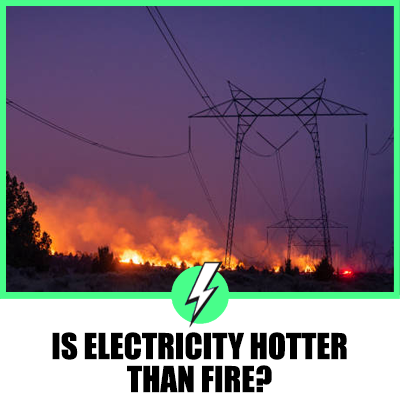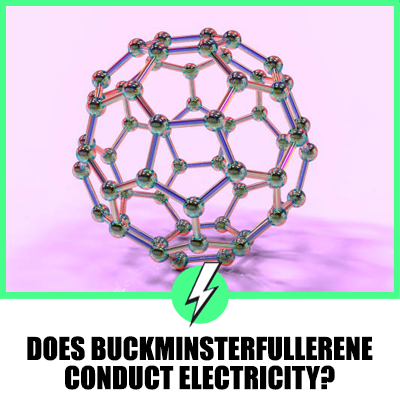Is Electricity Hotter Than Fire? A Comprehensive Analysis
Electricity and fire, two powerful forces of nature, have always fascinated humans.
Their immense power and potential for both creation and destruction have led to many questions, one of which is: “Is electricity hotter than fire?”
This article aims to answer that question and delve deeper into the fascinating world of electricity and fire.

Contents
Is Fire Hotter Than Lightning?
When we think of fire, we often imagine the warm glow of a campfire or the intense heat of a forest fire.
However, when compared to electricity, specifically lightning, fire falls short.
A bolt of lightning can reach temperatures of 50,000 to 70,000 degrees Fahrenheit (27,760 to 38,871 Celsius).
These incredibly high temperatures are caused by the rapid discharge of large amounts of static electricity (energy) in a very short period of time.
In contrast, the average temperature of a flame from a wood or forest fire is only around 1,472 degrees Fahrenheit (800 Celsius).
How Hot is Electricity?
Electricity itself does not have a temperature as it is the flow of electric charge.
However, the resistance to this flow of electricity in materials generates heat.
This heat can vary greatly depending on the amount of electricity (current) and the material it’s passing through.
In the case of lightning, the air it passes through can’t conduct the immense electrical charge very well, which leads to the air rapidly heating up and reaching temperatures five times hotter than the surface of the sun.
Can Anything be Hotter Than Fire?
Yes, many things can be hotter than fire.
For instance, lightning is significantly hotter than fire.
The core of the sun, nuclear explosions, and even certain types of stars known as blue hypergiants are all hotter than fire.
What is Stronger Fire or Electricity?
The term “stronger” is somewhat subjective and depends on the context.
If we’re talking about destructive potential, both fire and electricity can cause immense damage.
Fire can consume and destroy materials through combustion, while electricity can cause damage through heat (as in the case of lightning) or through the force of electrical discharge.
In terms of raw energy, a bolt of lightning carries a lot more energy than a typical fire.
Insights from Online Discussions
Online discussions on platforms like Physlink, Elektor Magazine, Firefighter Insider, Action News 5, and Answers provide valuable insights into this topic.
Many users agree that lightning, a form of electricity, is hotter than fire.
They point out that the temperature of a lightning bolt can reach up to 50,000 degrees Fahrenheit, much hotter than the surface of the sun.
This is due to the immense energy released in a very short time during a lightning strike.
However, it’s important to note that while lightning is hotter than fire, it doesn’t mean it’s more destructive.
The damage caused by fire or electricity depends on many factors, including duration, intensity, and the materials involved.
Electricity and Fire in the UK and US
The principles of understanding electricity and fire remain the same whether you’re in the UK or the US.
However, there may be differences in the way these elements are used or perceived in both countries.
For instance, in the US, where thunderstorms are more common, the power and heat of lightning might be a more familiar concept.
On the other hand, in the UK, where electric heating is more common than in the US, people might be more familiar with the heat generated by electrical appliances.
It’s also worth noting that safety regulations regarding fire and electricity can vary between the UK and the US.
Both countries have strict regulations to ensure the safe use of electricity and fire, but the specifics can differ.
For example, the UK uses a ring main circuit for domestic electrical supply, which is different from the radial circuits commonly used in the US.
Conclusion
In conclusion, while fire can reach incredibly high temperatures and cause significant damage, electricity, specifically in the form of lightning, can reach temperatures that far exceed those of fire.
However, the “strength” or destructive potential of fire and electricity can depend on many factors, and both can be incredibly powerful and dangerous forces.
Understanding these elements and respecting their power is crucial, whether you’re in the UK or the US.





